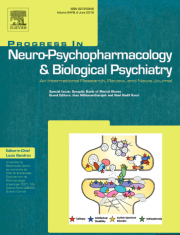Posted on June 08, 2018
Source: Progress in Neuro-Psychopharmacology and Biological Psychiatry

Lai S, Heaphy CM, Rizzo AJ, Celentano DD, Gerstenblith G, Li J, Moore RD, Treisman G, Chen S, Foster P, Kickler T, Lai H
BACKGROUND:
Although cocaine use may induce/accelerate HIV-associated comorbidities in HIV-infected individuals on antiretroviral therapy (ART), and that HIV itself may accelerate aging, the issue of whether cocaine use plays a role in HIV-associated aging in HIV-infected cocaine users has not been reported. The goals of this study were (1) to explore factor(s) associated with peripheral blood leukocyte telomere length, a marker of cellular replicative history, and telomere shortening in HIV-infected individuals, and (2) to assess whether cocaine use plays a role in accelerating telomere shortening in cocaine users with HIV infection.
METHODS:
Between June 2010 and December 2016, 147 HIV-infected participants in Baltimore, Maryland, were enrolled in a cross-sectional study investigating factor(s) associated with telomere length. Of these 147, 93 participated in a follow-up study to examine factor(s) associated with telomere shortening. Robust regression model was used to analyze cross-sectional data and the generalized estimating equation approach was used to analyze follow-up data.
RESULTS:
Cross-sectional analyses demonstrated that (1) both daily alcohol consumption and use of non-nucleoside reverse transcriptase inhibitors (NNRTIs) were independently associated with telomere length, and cocaine use modified the associations of daily alcohol use and NNRTI use with telomere length. Longitudinal analyses suggested that both daily alcohol consumption and duration of NNRTI use were independently associated with telomere shortening, and (2) cocaine use induced/accelerated telomere shortening in HIV-infected individuals.
CONCLUSIONS:
Our findings suggest that cocaine use may promote premature aging in HIV-infected individuals who are on ART. Our results emphasize the importance of cocaine abstinence/reduced use, which may retard HIV-associated premature aging.